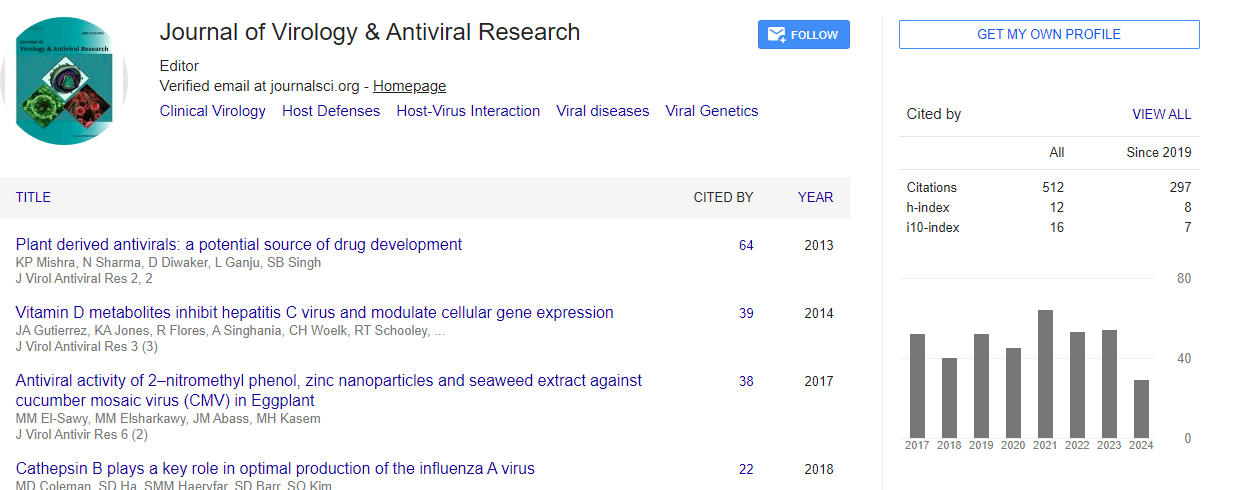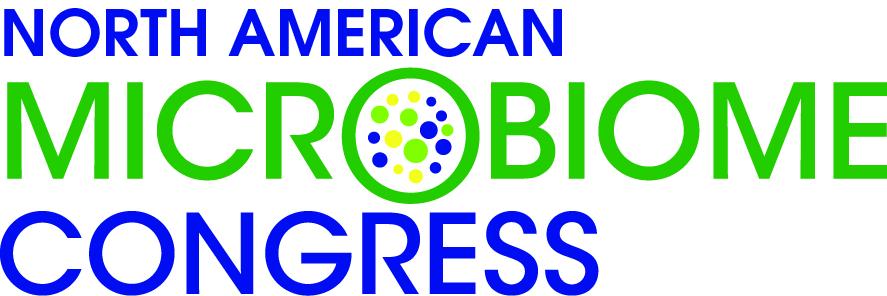Short Communication, J Virol Antivir Res Vol: 9 Issue: 3
Short Note on Viral Diseases
Mounica Merihelan*
Department of Microbiology, Andhra University, Visakhapatnam, India
*Corresponding Author: Mounica Merihelan
Department of Microbiology, Andhra University, Visakhapatnam, India
E-mail: mounicamerihelan@gmail.com
Received: July 10, 2020 Accepted: November 02, 2020 Published: November 09, 2020
Citation: Mounica M (2020) Short Note on Viral Diseases. J Virol Antivir Res 9:2.200. doi: 10.37532/jva.2020.9(3)200
Abstract
Viral diseases are extremely widespread infections caused by viruses, a type of microorganism. There are many types of viruses that cause a wide variety of viral diseases. The most common type of viral disease is the common cold, which is caused by a viral infection of the upper respiratory tract (nose and throat). Other common viral diseases include:Viral diseases result in a wide variety of symptoms that vary in character and severity depending on the type of viral infection and other factors, including the person’s age and overall health. Common symptoms of viral diseases include flu-like symptoms and malaise.
Keywords: Keywords: Viral Diseases, Viral Gastroenteritis, Viral Hepatitis, Viral Pneumonia
Viral diseases are extremely widespread infections caused by viruses, a type of microorganism. There are many types of viruses that cause a wide variety of viral diseases. The most common type of viral disease is the common cold, which is caused by a viral infection of the upper respiratory tract (nose and throat). Other common viral diseases include: Viral diseases result in a wide variety of symptoms that vary in character and severity depending on the type of viral infection and other factors, including the person’s age and overall health. Common symptoms of viral diseases include flu-like symptoms and malaise.
People at risk for complications include those who have a chronic disease or a suppressed or compromised immune system, and the very young and very old. Seek immediate medical care (call 911) if you, or someone you are with, have serious symptoms of an illness or a viral disease, such as shortness of breath, chest pain, passing out (fainting), or a change in alertness or consciousness
• Gastrointestinal disturbances, such as diarrhoea, nausea and vomiting · Irritability
• Malaise (general ill feeling) · Rash
• Sneezing · Stuffy nose, nasal congestion, runny nose, or postnasal drip · Swollen lymph nodes
• Swollen tonsils · Unexplained weight loss
In infants, signs of a viral disease can also include:
• Bulging of the soft spot on the top of the head
• Difficulty with feeding
• Excessive crying or fussiness
• Excessive sleepiness
Types of viruses
There are many types of viruses that cause a wide variety of viral infections or viral diseases. In fact, there are more than 200 different viruses that can cause a cold or an upper respiratory infection. Other common viruses include the following: · Epstein-Barr virus causes infectious mononucleosis (cytomegalovirus causes a very similar disease in some people). · Human immunodeficiency virus (HIV) causes AIDS
• Human papillomaviruses (HPV) cause HPV infection, cervical dysplasia, genital warts, and cervical cancer.
• Influenza viruses, such as H1N1, cause influenza (flu).
• Respiratory syncytial virus (RSV) causes lower respiratory tract infections in young children.
• Rhinoviruses cause the common cold. · Rotavirus, enteroviruses and noroviruses cause viral gastroenteritis.
• Varicella zoster virus causes shingles and chickenpox. · West Nile virus causes West Nile fever
Various ways to become infected with a virus
• You can catch a virus in a variety of ways including:
• Sharing needles for tattooing or drug use with an infected person
• Touching infected faces or body fluids and not washing your hands before eating or touching your mouth, eyes or nose
• Touching surfaces contaminated with a virus
• Transmission of a virus from an infected mother to her baby during pregnancy or delivery
Compromised immune system due to an immunodeficiency disorder, HIV/AIDS, cancer or cancer treatment, kidney disease, or other condition
• History of chronic disease, such as asthma, COPD, diabetes, tuberculosis, or heart disease
• Malnourishment
• Not getting enough rest and having high levels of stress
• Not washing your hands frequently, especially before eating or after using the restroom, or after touching common surfaces
• Sharing needles to inject drugs or for tattooing
• Unprotected sex including vaginal, oral and anal sex with a partner who has had one or more other sexual partners
• Young age including infancy and elementary-school-age children.
General treatment measures are aimed at relieving your symptoms so that you can get the rest you need to keep up your strength and recover without developing complications.
General treatments for viral infections include: · Acetaminophen (Tylenol) or ibuprofen (Motrin, Advil) for fever, body aches, and pain
• Drinking extra fluids
• Getting extra rest and sleep
• Maintaining good nutrition.
 Spanish
Spanish  Chinese
Chinese  Russian
Russian  German
German  French
French  Japanese
Japanese  Portuguese
Portuguese  Hindi
Hindi 

